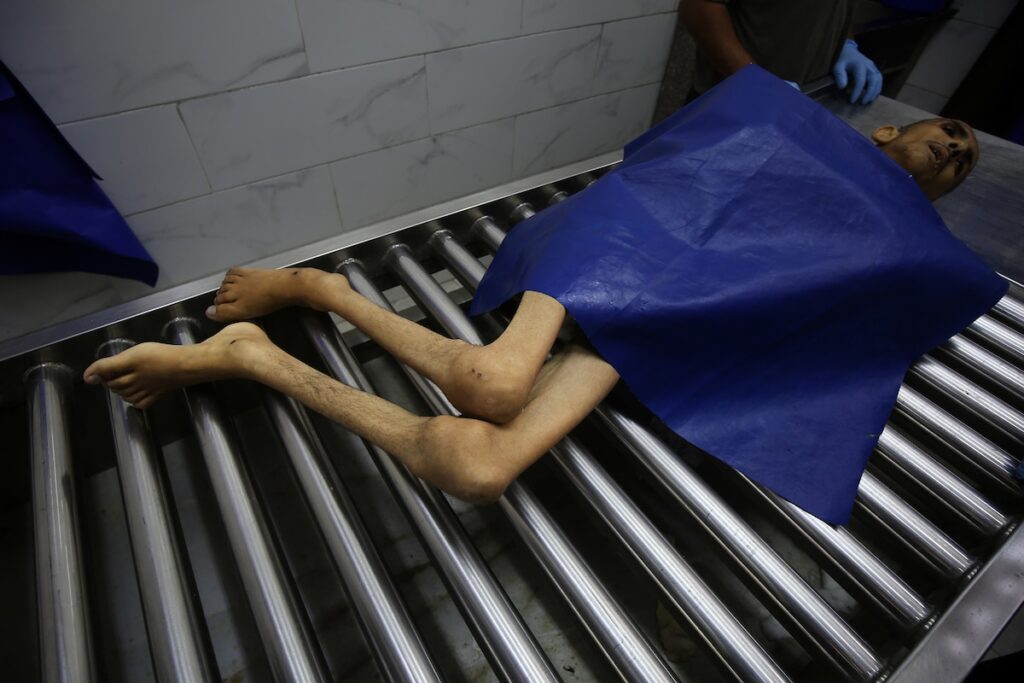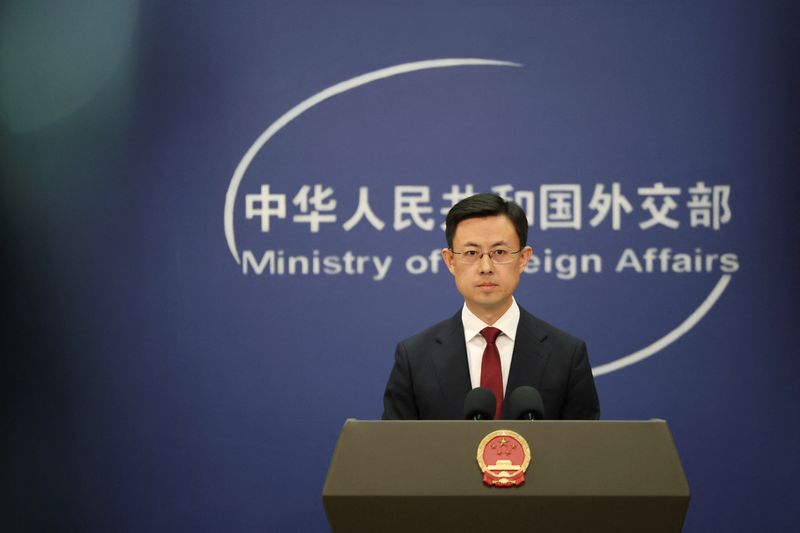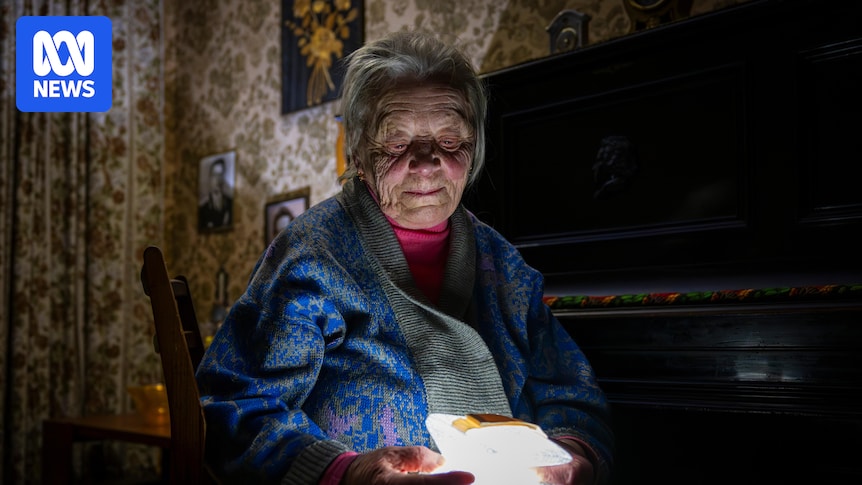
The body of 28-year-old Palestinian Hamada Nael Warsh Agha is brought to Al-Shifa Hospital in Gaza City for funeral procedures, after he died from malnutrition caused by Israels blockade and restrictions that have severely limited access to basic food supplies in Gaza, on August 26, 2025. Photo by Omar Ashtawy\ apaimages
One of the most shocking aspects of the Nazi Holocaust was the meticulous documentation by the perpetrators themselves. Despite this extensive evidence, Holocaust denial persists, representing one of the most heinous forms of anti-Jewish hatred. This historical denial finds a disturbing parallel in the current denial of the genocide in Gaza, which not only distorts reality but also accelerates the atrocity it denies.
The announcement comes as Israeli Prime Minister Benjamin Netanyahu dismisses famine reports in Gaza, labeling them as “baseless lies” and accusing the Integrated Food Security Phase Classification (IPC) of a “modern blood libel.” This denial of documented starvation is part of a broader trend among Israeli officials and supporters who urge the world to disregard the visible suffering in Gaza.
Denial Amidst Documentation
Despite widespread media coverage, denial of the humanitarian crisis in Gaza remains pervasive. Major outlets, including The New York Times, have questioned the severity of the situation, attributing images of starving children to “pre-existing conditions.” Such narratives serve to undermine the gravity of Israel’s actions, which have been characterized by some as genocidal.
Meanwhile, Israel’s claims of minimizing civilian casualties are contradicted by reports, such as a joint investigation by +972 Magazine and The Guardian, revealing that 83% of casualties were civilians, not militants. This figure starkly contrasts with Israel’s portrayal of a conflict targeting combatants, highlighting the discrepancy between official narratives and on-the-ground realities.
Historical Parallels and Moral Implications
Drawing parallels to historical atrocities, the rhetoric used by Israeli leaders echoes the justifications once employed by Nazi officials. Netanyahu’s argument that Israel could have committed genocide “in one afternoon” if it wanted to mirrors the twisted logic of historical perpetrators who denied their crimes by pointing to their incomplete execution.
Statements from Israeli officials further underscore this intent. From the outset of operations in October 2023, leaders like Yoav Gallant have openly declared measures against Gaza, reminiscent of genocidal policies. Such declarations, often the hardest element to prove in genocide cases, are alarmingly explicit in this context.
“I have ordered a complete siege on the Gaza Strip. There will be no electricity, no food, no fuel, everything is closed. We are fighting human animals, and we are acting accordingly.” – Yoav Gallant, October 2023
Global Response and Denial’s Consequences
The persistence of genocide denial in Gaza has tangible effects on international policy. Most countries with influence over Israel remain inactive, offering only rhetorical condemnations and symbolic gestures. This inaction is compounded by the exhaustion of those advocating for intervention, who must first convince others of the genocide’s reality.
For those familiar with Holocaust survivors, the denial of genocide is a profound moral outrage. It echoes the historical denial faced by victims of the slave trade, indigenous genocides, and other atrocities. The phrase “Never Again” becomes hollow when used selectively, failing to prevent or acknowledge ongoing genocides.
Ultimately, the denial of the Gaza genocide challenges our commitment to universal justice. It demands that we speak out against crimes committed by our own, recognizing the truth even when it implicates those we identify with. Only through acknowledging and contextualizing these events can we hope to prevent such horrors from becoming a permanent fixture of history.







